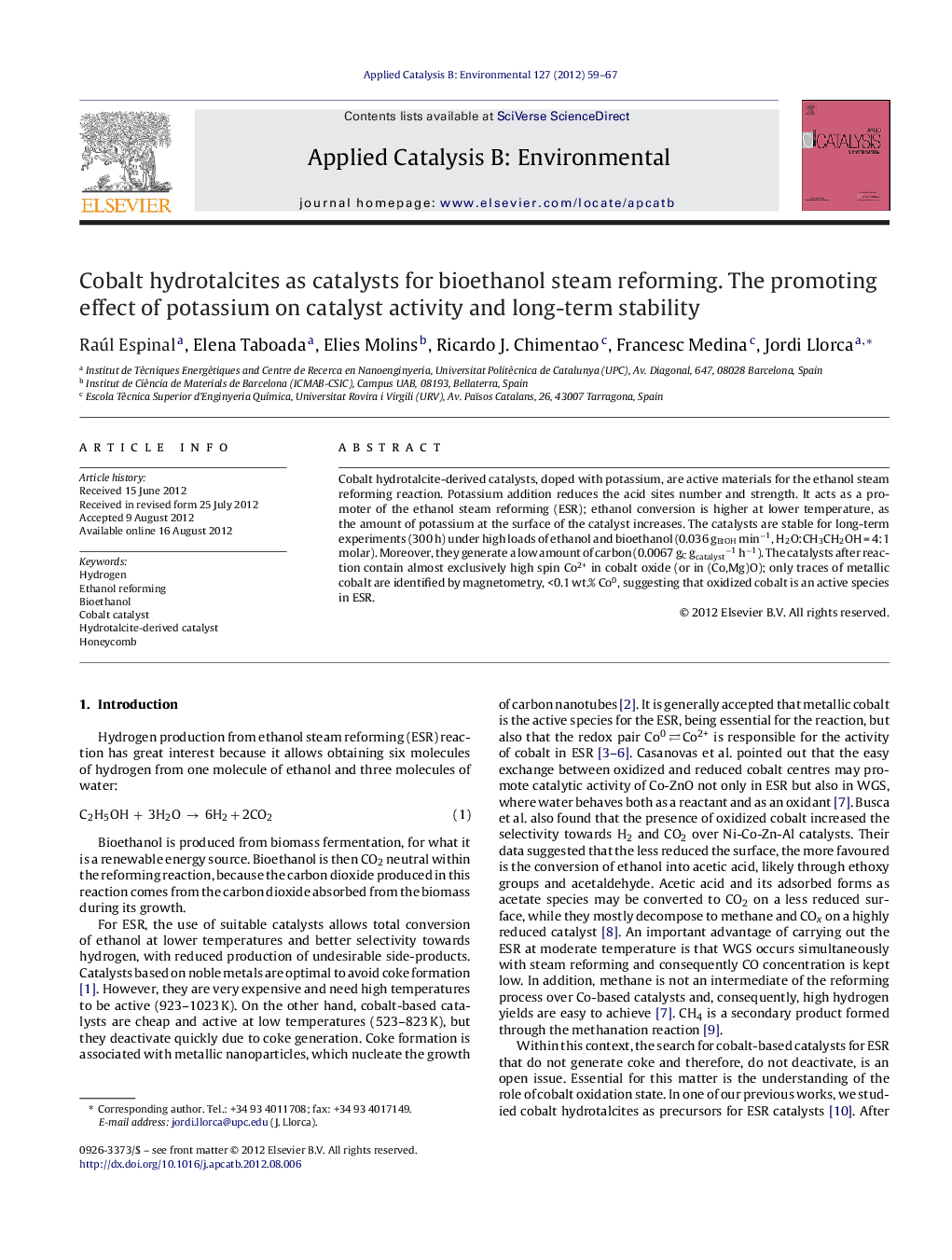| Article ID | Journal | Published Year | Pages | File Type |
|---|---|---|---|---|
| 46262 | Applied Catalysis B: Environmental | 2012 | 9 Pages |
Cobalt hydrotalcite-derived catalysts, doped with potassium, are active materials for the ethanol steam reforming reaction. Potassium addition reduces the acid sites number and strength. It acts as a promoter of the ethanol steam reforming (ESR); ethanol conversion is higher at lower temperature, as the amount of potassium at the surface of the catalyst increases. The catalysts are stable for long-term experiments (300 h) under high loads of ethanol and bioethanol (0.036 gEtOH min−1, H2O:CH3CH2OH = 4:1 molar). Moreover, they generate a low amount of carbon (0.0067 gC gcatalyst−1 h−1). The catalysts after reaction contain almost exclusively high spin Co2+ in cobalt oxide (or in (Co,Mg)O); only traces of metallic cobalt are identified by magnetometry, <0.1 wt.% Co0, suggesting that oxidized cobalt is an active species in ESR.
Graphical abstractFigure optionsDownload full-size imageDownload as PowerPoint slideHighlights► K is a promoter of Co/Mg/Al hydrotalcite-derived catalysts for ethanol reforming. ► Little carbon is generated under practical conditions using commercial bioethanol. ► Co spinel particles transforms into CoO strongly interacting with MgO. ► No metallic cobalt is detected after reaction.
